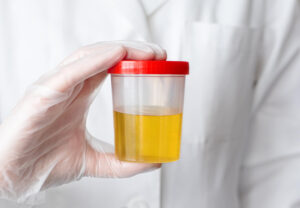Male fertility depends a lot on the quality of semen. One common worry for men is when their sperm looks watery, which can raise concerns about their ability to have children. But what exactly is watery sperm? Is it normal, or could it be a red flag pointing to male infertility?
This comprehensive guide explores the causes of watery sperm, how it may impact fertility and what treatments or lifestyle changes can help improve sperm health. Whether you’re trying to have a baby or just want to stay informed about your sexual health, knowing about semen consistency can help you understand your body better.
What is Watery Sperm?
Watery sperm, also known as low-viscosity semen, means the semen looks thinner, more watery or less thick than normal. Typically, healthy semen has a thick, white or greyish consistency. However, semen consistency can vary due to multiple factors, some of which are temporary and harmless, while others may indicate underlying health issues.
While a single occurrence of watery sperm is usually not a cause for alarm, frequent episodes might suggest issues with sperm concentration, motility or overall fertility.
Is Watery Sperm a Sign of Infertility?
Watery sperm may or may not indicate infertility in men. It depends on the underlying cause and whether it’s accompanied by other signs such as:
- Low sperm count
- Poor sperm motility (movement)
- Low semen volume
- Lack of sexual desire
- Difficulty maintaining an erection
In some cases, men with watery sperm can still conceive naturally. However, if you’ve been trying to conceive for more than a year without success, it’s essential to consult a fertility specialist and undergo a semen analysis to assess sperm health.
Common Causes of Watery Sperm
Understanding what causes watery sperm is the first step to finding the right solution. Below are the most common culprits:
1. Frequent Ejaculation
If you ejaculate multiple times in a short span (e.g., several times a day), your body may not have enough time to replenish the sperm count and seminal fluid, leading to watery semen. This is usually a temporary condition that resolves with rest.
2. Low Sperm Count (Oligospermia)
Low sperm count is a leading cause of watery sperm. When there are fewer sperm cells in the semen, the overall consistency becomes thinner. Causes of oligospermia include hormonal imbalances, varicocele and infections.
3. Zinc Deficiency
Zinc is essential for testosterone production and sperm development. A deficiency in this mineral can lead to watery semen, reduced sperm motility, and lower fertility levels.
4. Testosterone Deficiency (Hypogonadism)
Low levels of testosterone can negatively affect sperm production and semen volume. This hormonal imbalance can result in watery semen and reduced libido.
5. Retrograde Ejaculation
This condition occurs when semen flows backwards into the bladder instead of exiting through the penis during orgasm. As a result, little or no semen is released, or it appears watery.
6. Infections and STDs
Sexually transmitted diseases like chlamydia or gonorrhea, as well as infections in the prostate or seminal vesicles, can affect semen consistency and sperm health.
7. Lifestyle Factors
Poor lifestyle choices, such as excessive alcohol consumption, smoking, drug use, lack of sleep, and a sedentary lifestyle, can reduce semen quality.
8. Varicocele
A varicocele is an enlargement of veins within the scrotum that can affect sperm production and motility, often resulting in watery semen.
9. Prostate Issues
Conditions like prostatitis (inflammation of the prostate gland) can alter the consistency of semen, making it more watery.
When to See a Doctor
While occasional watery sperm isn’t necessarily a cause for concern, you should consult a doctor if:
- You experience consistently watery semen
- You’re having trouble conceiving
- You notice other symptoms like pain, fever, or blood in semen
- You have a history of STDs or hormonal issues
A medical professional may recommend a semen analysis, hormone testing or imaging studies to diagnose the cause.
How Watery Sperm Affects Fertility
Fertility depends on a combination of sperm count, motility, morphology (shape), and volume. Watery semen could point to issues in one or more of these areas:
- Reduced sperm motility: Watery fluid may not provide adequate support for sperm movement, thereby reducing the likelihood of reaching the egg.
- Low sperm concentration: Thinner semen often contains fewer sperm, which decreases the odds of fertilisation.
- Poor seminal fluid protection: Thicker semen helps protect sperm from the acidic vaginal environment. Watery fluid offers less protection.
Thus, if watery sperm is linked with other abnormalities, it can hinder fertility.
Diagnosis: What Tests Help Identify the Issue?
To determine the cause and effect of watery sperm, your healthcare provider may recommend:
1. Semen Analysis
This test evaluates:
- Semen volume
- Sperm count
- Motility
- Morphology
- pH and viscosity
2. Hormone Testing
Measures levels of testosterone, FSH, LH and prolactin to assess hormonal balance.
3. Ultrasound
Scrotal or transrectal ultrasound may be used to detect issues like varicocele or prostate abnormalities.
Treatment Options for Watery Sperm
The proper treatment depends on the underlying cause. Here are the most effective treatment strategies:
1. Lifestyle Changes
- Avoid frequent ejaculation – Give time for sperm regeneration.
- Exercise regularly – Boosts testosterone levels naturally.
- Maintain a healthy weight – Obesity is linked to poor sperm quality.
- Avoid alcohol and quit smoking – Both lower testosterone and sperm health.
- Reduce stress – High stress levels can affect hormone production.
2. Improve Your Diet
A balanced diet rich in the following nutrients can enhance semen consistency:
- Zinc (pumpkin seeds, oysters, red meat)
- Vitamin C (oranges, strawberries)
- Vitamin E (almonds, spinach)
- Folic acid (leafy greens)
- Omega-3 fatty acids (salmon, flaxseeds)
3. Supplements for Sperm Health
Your doctor may recommend supplements like:
- Zinc
- Vitamin D
- CoQ10
- L-Carnitine
- Ashwagandha
These can boost sperm motility and improve overall semen quality.
4. Medications
Infections causing watery sperm are often treated with antibiotics. Hormonal imbalances may be corrected with prescribed medications such as clomiphene citrate or hCG injections.
5. Surgical Intervention
If varicocele or structural abnormalities are the underlying cause, surgical correction may significantly improve sperm count and quality.
6. Fertility Treatments
For men with persistently poor semen quality, options like IUI (Intrauterine Insemination) or IVF (In Vitro Fertilisation) may be recommended.
Can Watery Sperm Be Prevented?
Yes, in many cases, watery sperm is preventable with proactive care:
- Practice safe sex to avoid infections
- Avoid tight underwear and prolonged heat exposure to the testicles
- Stay hydrated
- Get regular physical exams
- Avoid exposure to environmental toxins and radiation
FAQs About Watery Sperm
Q1. Is watery sperm always abnormal?
Not necessarily. Occasional watery sperm can be caused by recent ejaculation, stress or dehydration. However, persistent issues warrant medical attention.
Q2. Can I get my partner pregnant if I have watery sperm?
Yes, but your chances may be lower if it’s due to low sperm count or poor sperm motility. A semen analysis can help clarify a person’s fertility status.
Q3. How long does it take to improve semen consistency?
With proper diet, exercise, and medical support, improvements can be seen in 2–3 months, which corresponds to the average cycle of sperm production.
Conclusion
Watery sperm can be a concerning but often treatable issue. While it isn’t always a sign of male infertility, it can signal problems like low sperm count, hormonal imbalance or infections. The good news is that most cases can be managed through lifestyle changes, medical treatment and proper diagnosis.
If you’re experiencing frequent watery sperm and planning to start a family, don’t ignore the symptoms. Early detection and intervention can significantly impact your reproductive health.
If you’re experiencing symptoms like watery sperm or have concerns about your fertility, schedule a consultation at TheBoonIVF. Our specialists offer expert guidance, advanced diagnostic tests, and customized treatment plans to help you take the next step toward parenthood with confidence


